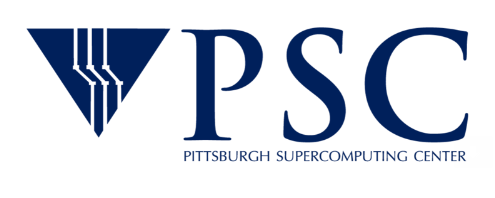
James Barr von Oehsen
James Barr von Oehsen has been selected as the director of the Pittsburgh Supercomputing Center (PSC), a joint research center of Carnegie Mellon University and the University of Pittsburgh. Von Oehsen is a leader in the fields of cyberinfrastructure, research computing, advanced networking, data science and information technology.
Von Oehsen joins PSC from New Jersey where he served as the associate vice president for the Office of Advanced Research Computing at Rutgers University and the co-lead of the New Jersey Alliance for Clinical and Translational Science informatics team. At Rutgers, von Oehsen helped advance the university’s research and scholarly achievements through computing, networking and data science, and he developed and implemented a cyberinfrastructure strategy, centralizing research computing across the university.
Von Oehsen will join PSC on May 1, succeeding Shawn Brown, who served as PSC’s director since 2019. Von Oehsen will hold additional appointments on the research faculty of Carnegie Mellon’s Department of Electrical and Computer Engineering and Pitt’s Departments of Electrical and Computer Engineering and Biomedical Informatics.
His research has been supported by the National Science Foundation (NSF) and National Institutes of Health (NIH) and includes designing and building secure campus-level federated platforms, cloud services, cybersecurity, advanced networking and computing at the edge. He also has worked on education, outreach and workforce development programs aimed at improving the technical expertise that is necessary to support next-generation technologies and user communities.
A founding member of the Ecosystem for Research Networking, von Oehsen brings with him experience working with diverse academic research communities both locally and throughout the nation.
“As someone who has a strong connection to the Cyberinfrastructure (CI) Ecosystem, I am very familiar with PSC and its many achievements and reputation as a global leader. The thought of being involved with moving PSC to the next level in advancing science and research is extremely exciting and an honor,” said von Oehsen.
 Founded in 1986, PSC is home to some of the most powerful systems for HPC, communications and data storage. PSC makes its systems available to scientists and engineers nationwide at no cost for leading-edge research, providing them with a flexible environment for solving the largest and most challenging problems in science, engineering and digital scholarship.
Founded in 1986, PSC is home to some of the most powerful systems for HPC, communications and data storage. PSC makes its systems available to scientists and engineers nationwide at no cost for leading-edge research, providing them with a flexible environment for solving the largest and most challenging problems in science, engineering and digital scholarship.
“Barr has a track record for establishing computing infrastructures that advance scientific research at the university and national level,” said Rebecca W. Doerge, Glen de Vries Dean of Carnegie Mellon University’s Mellon College of Science. “His leadership will ensure that PSC continues its legacy of high performance computing well into the future.”
“We are delighted that Barr will bring his expertise and enthusiasm for building large-scale cyberinfrastructure to Pitt and CMU,” said Rob A. Rutenbar, senior vice chancellor for research at the University of Pittsburgh.
PSC and its collaborators have attracted more than $708 million in total support to Pennsylvania. Most recently, PSC received $10 million from the NSF for its flagship Bridges-2, a next-generation supercomputer with massive computational capacity, along with an additional $14 million for its operational funding to date.
PSC’s mission is to apply advanced computing to urgent problems, including the responsible use of artificial intelligence, predicting the path of hurricanes, and better understanding the SARS-CoV-2 virus and the spread of COVID-19.
PSC is supported by several federal agencies, including the NSF and NIH, the Commonwealth of Pennsylvania and private industry. It is a leading partner in the ACCESS network of NSF-funded supercomputers and supercomputing services.
“I look forward to working with the PSC team to increase PSC’s portfolio in support of democratization of access to research instruments, data, technical expertise, infrastructure, services and resources with the goal of lowering the barriers to participation for scientists who want to engage in collaborative research across institutional and disciplinary boundaries,” said von Oehsen.



